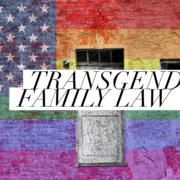Does My Child Have A Say In Custody?
So, you are thinking about divorce. You, like many parents, may wonder whether your child has a say in the custody (also known as time-sharing) schedule. Depending on your child’s age and maturity level, your child might have have some input in what your timesharing schedule should look like. However, a child under the age of 18 does not have the final say in a time-sharing schedule.
How Your Child Can Have A Say In Custody
Whether your child has a say may depend on whether you choose to litigate your case, or instead, participate in alternative dispute resolution like collaboration or mediation. In most litigated cases, a judge will not allow a child to participate in the proceedings. However, if you proceed with collaborative practice or mediation, your child may be able to participate if you and your spouse agree. If so, your child may attend a portion of the mediation or collaborative meeting. The mediator or collaborative facilitator will help determine the appropriate forum for the child to express his wishes and whether you and your spouse should be present.
Another option that is available to your family if you participate in alternative dispute resolution is to retain a child specialist. The role of the child specialist is to bring the voice of the child to the non-adversarial setting in a healthy and constructive way. This allows the child to provide input in the parents’ decision-making, which increases the likelihood that the child will want to follow the parenting plan.
But In Courtroom Divorce…
In contrast, if you choose to litigate and wish for your child to talk to the judge, you will need to first ask permission from the court. Except in rare situations, the preferences of pre-teen and younger children are not considered. The detrimental impact on the child of having to choose one parent over the other outweighs the good that could come from forcing a child to make that decision. Even for teenagers, judges tend to be adverse to putting the child in the middle.
Protect Your Child
Your child should never feel as though he has been thrust into your divorce, whether you are litigating or participating in alternative dispute resolution. Regardless of your child’s age, until he is eighteen, it is your responsibility to determine what is best for your child. The guidance of a mental health professional or child specialist can ensure that you are making the best decision for your child.
Adam B. Cordover practices exclusively in out-of-court dispute resolution, with a focus on collaborative practice and mediation. Adam is a co-author of an upcoming American Bar Association book on collaborative practice.




